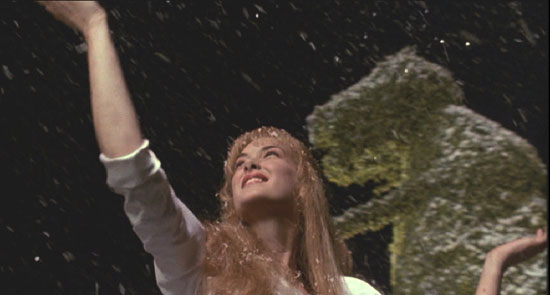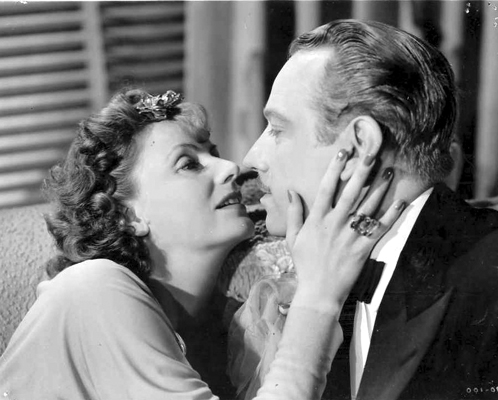The past five or so days have been fun and productive. There have been a few movies that I have chosen to watch and a few that have chosen me, so to speak. We have Basic Instinct, Harold and Maude, Edward Scissorhands, The Philadelphia Story, and Two-faced Woman. I chose each for certain reasons, some because there was a connecting element, like a director or actor, and others are connected in unintentional ways, an actor or actress surprising me in a film I didn't know they were in. So here are films 14 through 19:
14.) Basic Instinct (1992)
11/24/12
The most wonderful
piece of trash I’ve ever watched.
Starring Michael Douglas (someone who I grew
up hating because my mom would always watch his cheesy, Kathleen Turner
Romantic Comedies but who I’ve grow to enjoy in a cult sort of way), Sharon
Stone (who you definitely don’t see enough of in this film), and too many other
“that guy” characters to name each. Directed by Robocop’s Paul Verhoeven.
I just
finished a book called The Film Club
about a father who lets his son drop out of school as long as they watched 3
films a week together. The father chooses many art films in which to show his
son to try and give him the most effective and “formal” education possible. But
to keep his son’s attention, one of the first films they watched was Basic Instinct. To which, the son
replied: “Now that’s a great film!” I have to agree.
 |
| Sharon Stone in Basic Instinct. What a hartlett. |
The
dialogue (as the father tells the son) is indeed repulsively wonderful. It has
a very ridiculously complex and sometimes ambiguously incomprehensible plot.
But at the end, the point of the film is to get to the end. It wraps things
up exactly how you want every film to
end: the protagonist (Douglas) ends up with the girl (Stone) even though she’s
no good for him. That is my problem with the film. But, this is outweighed by
my “cult” love for Michael Douglas and the extremely rich-with-cheese dialogue
(from Douglas, Stone, and every other “that guy” in the film) that reminds you
of Barney Stinson picking up girls at McLaren’s Pub.
And of
course, you can’t forget the interrogation scene; I mean come on, who doesn’t
love laughing at Wayne Knight sweeting in embarrassment. Also, the car chase scene
where Douglas crashes his ways through the San Francisco streets, I was just
waiting for a little green bug to pop into view. Basic Instinct was so full of too-clever one liners and movie
reference that it had more cheese than Scary
Movie.
15.) Harold and Maude (1971)
11/25/12
Starring Bud Cort and
Ruth Gordon (who a few years earlier became the oldest actress at the time to
win an Oscar for her role in Rosemary’s
Baby). Directed by Hal Ashby.
Aside
from the great soundtrack by Cat Stevens, which is essential to the film, a lot more can be said about this film, but I’ll try to be short. Visually, I
would compare it to The Graduate,
where there is a strong balance between times of musical interludes and the lack of music completely and also a moving, active camera and a static
one. This can be seen from the very first shot, where the camera follows
Harold’s (Cort) feet as he walks through the parlor. They don’t show his face,
just his feet, as he prepares a noose to hang himself. In contrast to later in
the film, Harold and Maude talk to each other in a patch of daisies, then in a
grave yard with uniform white headstones. The camera zooms out, pixelating the
characters, making them practically blend
in—assimilate almost.
 |
| Ruth Gordon and Bud Cort in a daisy patch in Harold and Maude. |
These
two examples and the age gap of the new couple, Harold and Maude represent the
heated topic of the day: the generation gap. Ashby expresses his own conundrum
and the perception that the older generation (that of Harold’s mother) is so
out of touch with the younger (Harold’s) generation, but the relationship
between Maude (also the older generation) and Harold shows that there is still much
to learn. This is definitely a film of its time, everything that Harold does,
all of his suicide attempts and antics with Maude, they are all initially
rebellions against the authority figures of the older generation, but
eventually with the help of Maude, they flower into not just Harold’s rebellion
but his identity, which is what he is in search of the whole film, isn't it?
16.) Edward Scissorhands
(1990) 11/26/12
Starring Johnny Depp,
Winona Ryder, Anthony Michael Hall (as the bully/punk boyfriend of Winona
Ryder) and Vincent Price in his last ever film role. Also, Diane Wiest and
Allan Alda as the parents of Winona Ryder and Robert Oliveri as her brother,
who was Nick Szalinski in Honey, I Shrunk
the Kids and Honey I Blew Up the Kid.
Directed by Tim Burton.
Having seen this film already, I simply enjoyed this film
for what it was worth, but Tim Burton’s themes are unavoidably noticeable. His
creativity, style, and humor are evident throughout, most distinctly
in the cookie-cutter cul-de-sac; houses painted in stark but bright pinks,
blues and greens emphasize his criticism of the ‘burbs: that everyone who lives
there is just a little bit weird.
 |
| Snowing on Winona Ryder |
Burton’s inclusion of Vincent Price just magnifies the
darkness of the picture; Price is known for many of his Gothic horror films, collaborations with early horror masters William Castle and Roger Corman, and
also his uniquely foreboding voice that I personally have a particular affinity
for stemming from my childhood. When I would think ominous, I would think of
Ratigan from Disney’s The Great Mouse
Detective (Yes! Vincent Price was indeed Ratigan’s voice!) And what would
the film be without the hauntingly beautiful score that is never more touching
than when Edward (Depp) shaves an ice sculpture of Kim (Ryder)? The television
station I watched this on bills the film as a “Christmas” film, and the ice
flakes that gently loft down on Kim capture the spirit of the holiday. With the music, the snow falling down, and a robot boy (that Edward
is) having true emotions for a girl are embodied in the child-like wonder that
the Holiday Season allows. I will for the time being reserve my comments on
Burton’s more recent movies, but this is one of his most original and creative
works.
18.) The Philadelphia Story
(1940) 11/27/12
Starring Cary Grant, Katherine
Hepburn, Jimmy Stewart (who won a Best Actor Oscar) Ruth Hussey, and Roland
Young. Directed by Hollywood Studio workhorse George Cukor, who collaborated 10
times with Hepburn and directed 20 different actors in Oscar-nominated
Performances.
 |
| Hepburn and Stewart, champagne in hand. |
The film centers around a family who is under media
scrutiny and is based off of an actual Philadelphia family. At the base of the
film, there is a classic romantic comedy brewing that includes a divorcée (Hepburn)
who wants to get remarried. But her ex (Grant) hires a tabloid team (Stewart
and Hussey) to write a bomb of story destroying her reputation (but secretly
winning her back). Stewart falls for Hepburn, Hepburn falls for him, Grant falls
back for Hepburn, and she falls back for him. The plot is about as eye-rolling
as you’ve ever seen, but what makes this film so endearing (for me at least)
are the performances and the set-pieces.
Ole Jimmy Stewart gets loaded on Champagne (always
Champagne and probably actual Champagne) at a dinner party with Hepburn and
uncle Willie (Young), and they return to her house, they (Jimmy and Katharine) have a romantic dip in
her pool and everyone thinks: scandal! Yes, this is the scene however with the
most classic scene, Hepburn in Stewart’s arms Jimmy mimicking or maybe
foreshadowing a George-Bailey-esque performance gobbles some sweet poetry, and
they kiss. Classic cinema at its best, and of course, in the end, Cary Grant
and Katherine Hepburn, the original divorcés end up back together again. Under
the Production Code, it would not have been heard of to let such a heresy as
divorce exist. So it didn't, and the plot wrapped up happily-ever-after.
19.) Two-faced Woman (1941)
11/27/12
What a gem to stumble
upon, so appropriate indeed. After having watched The Philadelphia Story on DVD, this was on the never-failing Turner
Classic Movies right after I finished.
Starring the stunning
and intense Greta Garbo (so sassy was she in this—her
last film!), Melvyn Douglas, Roland Young (Uncle
Willie from The Philadelphia Story),
and Ruth Gordon (yes, many years before her performance as Maude in Harold and Maude.) Also, directed by
George Cukor again (coincidentally)!
Cukor follows the formula that made him such a mainstay
in Hollywood during the thirties, forties, and into the fifties: the remarriage
comedy. In this particular film, the couple never divorces, but they might as
well have. Larry (Douglas) marries his ski instructor Karin (Garbo) on a whim
after he falls dramatically in love with her after she saves him from falling backwards down a mountain on his skis. He goes back to work in New York, basically shafting
her in the process, so she comes to New York to surprise him. She suspects
foul-play on his part, so as Garbo does so well, she decides to play afoul too.
She pretends to be Catherine, her twin sister (of which she has none—shucks!
Two Garbos would be great!)
 |
| Greta Garbo seducing Melvyn Douglas |
Pretty
standard rom-com, but what sets it apart to me, and what kept me rolling
throughout the film was how Garbo was able to keep delivering line after innuendo-laced
line of the stuff romantic comedies are made of. In a scene in a hotel room when
Karin is “playing” her twin sister Catherine, Larry offers her cash money (her being
his sister-in-law, not for any other "services") to help her pay for her clothes.
She denies him quipping, “It’s against my morals,” to which he replies in a
beat, “You sure have an unusual sense of morals.” Then he trusts himself upon
her.
Another
impassioned scene between Larry and “Catherine” finds the two again in a hotel
room. Catherine (Garbo mind you) comes on to Larry saying, “I looked up that
word you told me about: alone. It means to be with you.”
“That sounds like a
charming dictionary,” he slyly replies. No matter how good a film may look
today, no matter how many special effects, or camera movements, none of those
aspects of the movies can compare to dialogue like this.
No comments:
Post a Comment